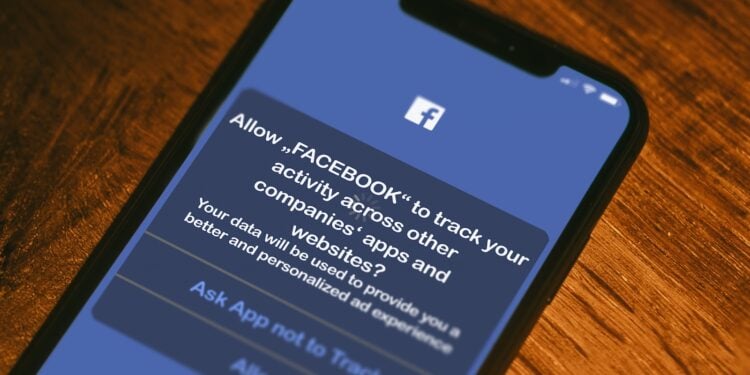Apple is once again under pressure in Europe. A competition authority accuses the company of using its App Tracking Transparency feature to create a misleading impression of data privacy. The accusation sounds harsh, but it's based on a fundamental misunderstanding of how the system works. The case illustrates how strained the relationship between Apple and EU authorities has become and how quickly conflicts arise when data privacy and competition collide.
App Tracking Transparency is considered one of Apple's most visible privacy tools. It's designed to prevent apps from tracking users across different services without their consent. However, the EU views this system not only from a privacy perspective but also as a potential competition issue. This new investigation from Poland joins a long series of disputes in which Apple defends itself against accusations of favoring its own products and disadvantaging competitors.
Ongoing dispute between Apple and EU authorities
The EU has clear rules for fair competition. If a company uses data to improve features of its own products, that same data should theoretically also be available to competitors. Apple, however, emphasizes that data access is designed to protect privacy. According to Apple, it would be risky to expect third-party providers to adhere to the same data protection standards.
These opposing viewpoints regularly lead to disputes. A recent example is the Apple Watch. In the EU, it can no longer access the Wi-Fi history of a paired iPhone. Apple would have had to grant this data access to competing manufacturers as well, which the company refuses to do. Instead, Apple is removing the function entirely to avoid sharing sensitive information.
How App Tracking Transparency Works
App Tracking Transparency assigns each device an anonymous identifier. This reveals nothing about the user's identity, but allows inferences to be made about interests and usage patterns. If a device frequently visits gadget websites, it is considered a suitable target for relevant advertising.
Apps must request permission before using this identifier. In most cases, access is denied, thus preventing tracking. This mechanism is the core of the system.
The accusation of deception
The Polish competition authority UOKiK believes that Apple continues to use data regardless of whether users have given their consent. According to the authority, this gives Apple an advantage in marketing advertising on its own platforms, especially in the App Store.
The president of the UOKiK, Tomasz Chrostny, says that the ATT directive may have misled users about the true extent of data protection. He also suspects that the rules give Apple a competitive advantage over independent publishers.
Apple's reaction
Apple categorically denies the allegations. The company says it's not surprising that the advertising industry is exerting pressure. Apple emphasizes that the App Tracking Transparency feature was created precisely to give users more control over their data. According to Apple, the feature could have to be withdrawn in the EU if regulatory pressure continues to increase. From the company's perspective, this would be detrimental to European consumers, who would lose an important data privacy tool.
Where the misunderstanding comes from
The dispute is based on a false assumption about how Apple's own apps work. Apple doesn't display a consent dialog because the company itself doesn't grant itself access to the tracking identifier. Therefore, there is no covert tracking. The lack of a dialog arises because, technically, there is nothing to request.
Even though the system works this way, the way it's displayed repeatedly causes confusion. Many interpret the behavior of Apple apps as preferential treatment, although the reason lies in the internal architecture. One possible way to avoid such accusations in the future would be to implement a voluntary consent dialog for Apple's own services as well, even if consent had no practical effect.
Apple: A point of conflict between data privacy and competition
This case illustrates how differently data protection and competition can be interpreted. Apple relies on strict restrictions on data handling, while EU authorities ensure that these restrictions do not lead to inequalities. The current accusation from Poland stems from a misunderstanding about the technical implementation of App Tracking Transparency, but it highlights a genuine communication problem. If Apple wants to retain the feature in Europe, the company must transparently explain how its own apps handle data. Otherwise, another conflict threatens, ultimately affecting precisely the users whose data is supposed to be protected. (Image: Shutterstock / Audio and advertising)
- Anthropic introduces new AI model Claude Opus 4.5
- Apple surprises with rare layoffs in sales
- OpenAI increases pressure on Apple through massive poaching efforts
- ChatGPT simplifies product search with new AI shopping tool
- Apple News without CNN: Background to the unexpected withdrawal
- French lawsuit puts Apple's App Store fees in the spotlight
- Apple publishes study on smart activity tracking
- macOS 26.2: The three biggest new features at a glance
- ChatGPT Atlas Update brings new features to macOS
- The EU is putting an end to annoying cookie banners across the entire internet
- Apple presents the finalists of the App Store Awards 2025
- Cloudflare outage explained: How the worldwide problem occurred
- Gemini 3 sets new AI standards & changes Google's products
- WhatsApp is finally testing two accounts on a single iPhone
- Apple releases new firmware for key accessories
- WhatsApp vulnerability remained unprotected for eight years
- How Apple is creating new titanium components using 3D printing
- Apple releases the major podcast charts for 2025
- The iPhone 17 lifts Apple to its strongest level in China in years.
- Apple loses another key designer amidst ongoing changes





